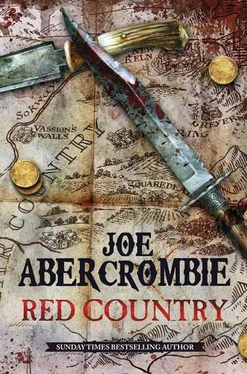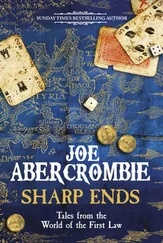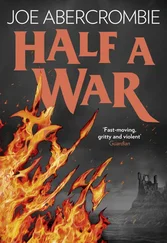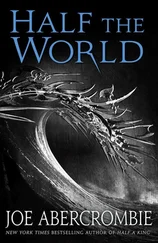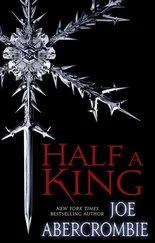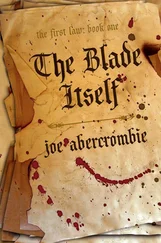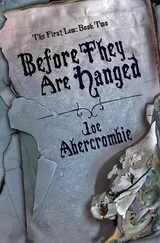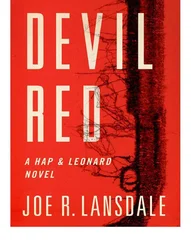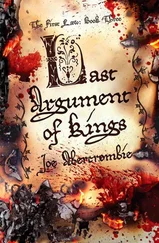Temple had suffered some long and sleepless nights during his life. The night the Gurkish had finally broken through the walls and the Eaters had come for Kahdia. The night the Inquisition had swept the slums of Dagoska for treason. The night his daughter died, and the night not long after when his wife followed. But he had lived through none longer than this.
People strained their eyes into the inky nothing, occasionally raising breathless alarms at some imagined movement, the bubbling cries of one of the prospectors who had an arrow-wound in his stomach, and who Corlin did not expect to last until dawn, as the backdrop. On Savian’s order, since he had stopped making suggestions and taken unquestioned command, the Fellowship lit torches and threw them out into the grass beyond the wagons. Their flickering light was almost worse than darkness because, at its edges, death always lurked.
Temple and Shy sat together in silence, with a palpable emptiness where Leef ’s place used to be, Lamb’s contented snoring stretching out the endless time. In the end Shy nodded sideways, and leaned against him, and slept. He toyed with the idea of shouldering her off into the fire, but decided against. It could well have been his last chance to feel the touch of another person, after all. Unless he counted the Ghost who would kill him tomorrow.
As soon as there was grey light enough to see by, Sweet, Crying Rock and Savian mounted up and edged towards the trees, the rest of the Fellowship gathered breathless on the wagons to watch, hollow-eyed from fear and lack of sleep, clutching at their weapons or at each other. The three riders came back into view not long after, calling out that in the lee of the timber there were fires still smoking on which the Ghosts had burned their dead.
But they were gone. It turned out they were practical thinkers after all.
Now the enthusiasm for Lamb’s courage and swift action was unanimous. Luline Buckhorm and her husband were both tearful with gratitude on behalf of their dead sons. Gentili would have done just the same in his youth, apparently. Hedges would have done it if it weren’t for his leg, injured in the line of duty at the Battle of Osrung. Two of the whores offered a reward in kind, which Lamb looked minded to accept until Shy declined on his behalf. Then Lestek clambered on a wagon and suggested in quavering tones that Lamb be rewarded with four hundred marks from the money saved, which he looked minded to refuse until Shy accepted on his behalf.
Lord Ingelstad slapped Lamb on the back, and offered him a swig from his best bottle of brandy, aged for two hundred years in the family cellars in faraway Keln which were now, alas, the property of a creditor.
‘My friend,’ said the nobleman, ‘you’re a bloody hero!’
Lamb looked at him sideways as he raised the bottle. ‘I’m bloody, all right.’
It was cold as hell up in them hills. The children all cold, and scared, huddling together at night close to the fires with cheeks pinched and pinked and their breath smoking in each other’s faces. Ro took Pit’s hands and rubbed them between hers and breathed on them and tried to wrap the bald furs tighter against the dark.
Not long after they got off the boat, a man had come and said Papa Ring needed everyone and Cantliss had cursed, which never took much, and sent seven of his men off. That left just six with that bastard Blackpoint but no one spoke of running now. No one spoke much at all, as if with each mile poled or rode or trod the spirit went out of them, then the thought, and they became just meat on the hoof, trailing slack and wretched to whatever slaughterhouse Cantliss had in mind.
The woman called Bee had been sent off, too, and she’d cried and asked Cantliss, ‘Where you taking the children?’ And he’d sneered, ‘Get back to Crease and mind your business, damn you.’ So it was up to Ro and the boy Evin and a couple of the other older ones to see to the blisters and fears of the rest.
High they went into the hills, and higher, twisting by scarce-trodden ways cut by the water of long ago. They camped among great rocks that had the feel of buildings fallen, buildings ancient as the mountains. The trees grew taller and taller until they were pillars of wood that seemed to pierce the sky, their lowest branches high above, creaking in the silent forest bare of brush, without animals, without insects.
‘Where you taking us?’ Ro asked Cantliss for the hundredth time, and for the hundredth time he said, ‘On,’ jerking his unshaved face towards the grey outlines of the peaks beyond, his fancy clothes worn out to rags.
They passed through some town, all wood-built and not built well, and a lean dog barked at them but there were no people, not a one. Blackpoint frowned up at the empty windows and licked at the gap in his teeth and said, ‘Where did they all go to?’ He spoke in Northern but Lamb had taught Ro enough to understand. ‘I don’t like it.’
Cantliss just snorted. ‘You ain’t meant to.’
Up, and on, and the trees withered to brown and stunted pine then twisted twig then there were no trees. It turned from icy cold to strangely warm, the soft breeze across the mountainside like breath, and then too hot, too hot, the children toiling on, pink faces sweat-beaded, up bare slopes of rock yellow with crusted sulphur, the ground warm to touch as flesh, the very land alive. Steam popped and hissed from cracks like mouths and in cupped stones lay salt-crusted pools, the water bubbling with stinking gas, frothing with multicoloured oils and Cantliss warned them not to drink for it was poison.
‘This place is wrong,’ said Pit.
‘It’s just a place.’ But Ro saw the fear in the eyes of the other children, and in the eyes of Cantliss’ men, and felt it, too. It was a dead place.
‘Is Shy still following?’
‘Course she is.’ But Ro didn’t think she could be, not so far as this, so far it seemed they weren’t in the world any more. She could hardly remember what Shy looked like, or Lamb, or the farm as it had been. She was starting to think all that was gone, a dream, a whisper, and this was all there was.
The way grew too steep for horses, then for mules, so one man was left waiting with the animals. They climbed a deep, bare valley where the cliffs were riddled with holes too square for nature to have made, heaped mounds of broken rock beside the way that put Ro in mind of the spoil of mines. But what ancient miners had delved here and for what excavated in this blasted place she could not guess.
After a day breathing its ugly fume, noses and throats raw from the stink, they came upon a great needle of rock set on its end, pitted and stained by weather and time but bare of moss or lichen or plant of any kind. As they came close in a group all tattered reluctance, Ro saw it was covered with letters, and though she couldn’t read them knew it for a warning. In the rocky walls above, the blue sky so far away, were more holes, many more, and towering, creaking scaffolds of old wood held platforms, ropes and buckets and evidence of fresh diggings.
Cantliss held up his open hand. ‘Stop here.’
‘What now?’ asked Blackpoint, fingering the hilt of his sword.
‘Now we wait.’
‘How long?’
‘Not long, brother.’ A man leaned against a rock, quite at his ease. How Ro had missed him there she could not tell because he was by no means small. Very tall, and dark-skinned, head shaved to the faintest silver stubble, and he wore a simple robe of undyed cloth. In the crook of one heavy-muscled arm he had a staff as tall as he was, in the other hand a small and wrinkled apple. Now he bit into it and said, ‘Greetings,’ with his mouth half-full, and he smiled at Cantliss, and at Blackpoint and the other men, his face alive with friendly creases unfitting to these grim surroundings, and he smiled at the children, and at Ro in particular, she thought. ‘Greetings, children.’
Читать дальше
